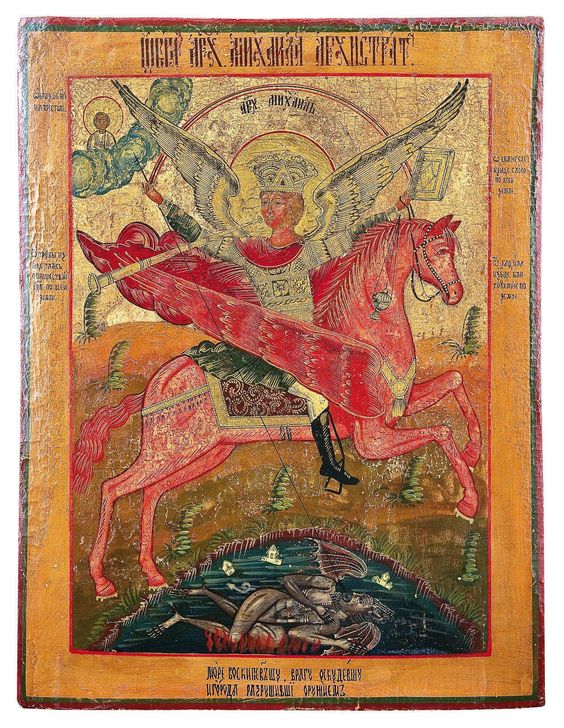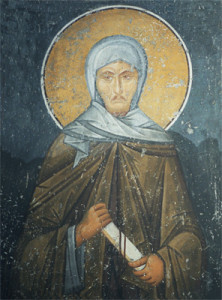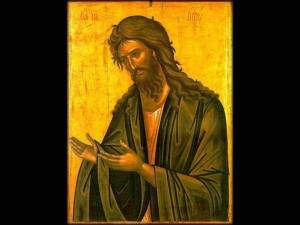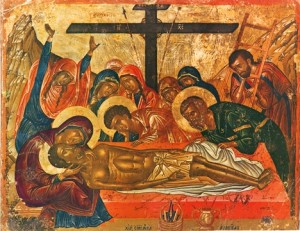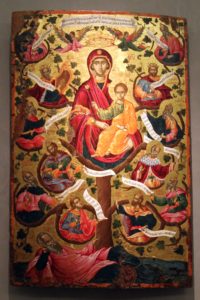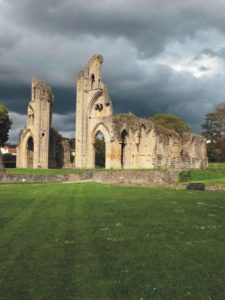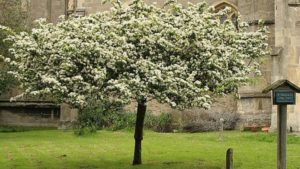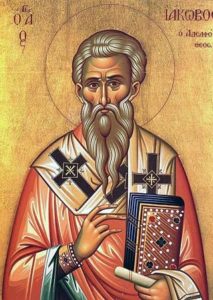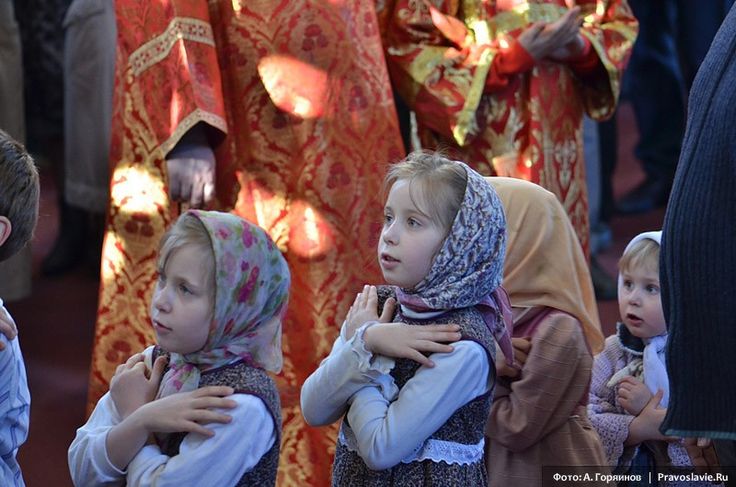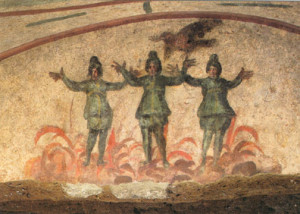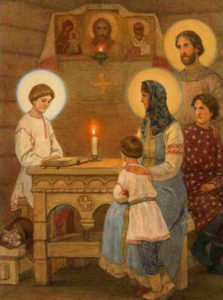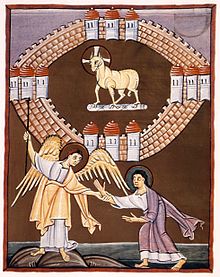The Holy Metropolis of Toronto (GOC) has announced the beginning of a critically needed education initiative for our young people (and eventually for adults as well!). Below please read the two announcements and appeals from His Eminence Moses, Metropolitan of Toronto. The program he is announcing also has the blessing of Metropolitan Demetrius of America for the benefit of our faithful in the United States.
Though this is a program of the Metropolis of Toronto, because it will be online all of our English speaking faithful throughout the world will be able to take these courses. As you will see from His Eminence’s second message, two of the first three courses to be offered this fall are specifically directed at a critical age group, middle and high school students, who will be able to take logic and Orthodox apologetics, in order to get the mental tools they need to analyze and refute the anti-Christian propaganda all around them, as well as to articulate the Faith to themselves. The other course this fall will be Introduction to Ecclesiastical Greek.
I urge everyone to read Metropolitan Moses’ appeals and support the Orthodox Education Initiative, our new online curriculum for Orthodox families. Note that this is not only a religious instruction program, but aims eventually to be a complete curriculum. This is potentially VERY BIG. We need to seize this moment and run with this!
January 19/February 1, 2019
Saint Mark of Ephesus
Beloved Brothers and Sisters in Christ,
As I reflect on our recent celebration of the Feast of Lights, I would like to share a few thoughts with you all concerning our work together for salvation. In the Feast of Lights, that is, Theophany, our Lord immersed Himself in the waters, as a type of His Cross and death and came out of the water as a type and image of His Resurrection. Immediately after this act the heavens were opened and the Holy Spirit in the form of a dove hovered over Him and the voice of the Father said, “Thou art My beloved Son, in whom I am well pleased.” (Mark 1:13)
Thus, from the types shown in this feast and the teachings of the Holy Church, we learn that it is through participating in the Cross of our Savor that we also participate in the light and joy of His Resurrection. The life of a Christian has always included a carrying of the cross through withdrawal from the things of the world in order to constrain ourselves to pray and, at times, to constrain ourselves to fast.
Yet, there is also another way that we must constrain ourselves for the sake of salvation and that is we must take time to read and educate ourselves and our children in the things of God.
We are surrounded by and live and move in a Post-Christian culture that brings with it spiritual darkness and confusion. Speaking of free rational adults, if one is not well versed in the things of our Faith and not vigilant, one can easily be influenced by this spiritual darkness and confusion. When it comes to children, the danger is greater. I have been and continue to be very concerned with our common struggle to protect our children and raise them in the nurture and admonition of the Lord. We must do everything in our power to inoculate our children from the many spiritual diseases that result from the confusion of this age. With that in mind I wish to share a quote from the book, Father Kosmas, The Apostle of the Poor:
Father [St.] Kosmas asked:
“Do you have a school here, here in your village to teach your children?”
“We don’t, O saint of God.”
“You must all get together and establish a good school. Appoint a committee to govern it, to appoint a teacher to teach all the children, rich and poor. Because it is in school that we learn who God is; who is the Holy Trinity; who are the angels, demons; and what is paradise, hell, virtue, evil; what is the soul, body, etc. Without a school we walk in darkness.The school leads to the monastery. If there were no school, how would I have learned to teach you?
I studied about priests and about unbelievers, heretics, and atheists. I searched the depths of wisdom, but all the faiths are false. I learned this to be true, that only the faith of the Orthodox Christians in the name of the Father, and the Son, and of the Holy Spirit. In conclusion, I tell you this. Rejoice that you are Orthodox Christians and weep for the impious and heretics who walk in darkness.“ (Father Kosmas, The Apostle of the Poor, Nomikos M. Vaporis, p. 33 )
Here Saint Kosmas exhorted his listeners to build a school for their children and explained that it was through being properly educated he came to practical knowledge and, what is higher, a depth of wisdom that discerned the distinction between truth and falsehood. Saint Kosmas’ words apply to our own day. We “must all get together and establish a good school.”
With this letter, I look to establish the Metropolis of Toronto Orthodox Educational Initiative.
To begin with, I wish to acknowledge the wonderful work that Fr. Panagiotes and Fr. George did in the past. For some eight years they organized and ran the Saint John of Kronstadt School at the Saint Nektarios Parish. This is the ideal. The absolute best would be to have a school that students would attend daily and be guided by the clergy and teachers.1
To start such a school is not possible at this time because of the change in demographics and the fact that families live too far from the parish to make it feasible, etc.
I want to offer a practical alternative, that is, a hybrid program. I would like to establish an online school for the Metropolis combined with quarterly workshops hosted in the Metropolis, for those who can attend.
This program would be for everyone. Whether your child attends public or private school or is homeschooled, the program will offer online classes taught by Orthodox teachers.
There are many examples today of successful online schools. This can be done.
There is no school that is ideologically neutral. When anti-Christian schools teach our children their version of morals, culture, history, and literature, they are working to destroy souls. We must fight back. We seek to create a curriculum that teaches the Orthodox catechism effectively and thoroughly, as cannot be accomplished with a mere 20 to 30 minutes at Sunday School. But beyond that, we aim to offer academic classes using the traditional, classical method created in ancient Greece and Rome, and brought to perfection by our own East Roman (Byzantine) forbears. Classical schooling is “all the rage” now in the Christian schooling movement, which is dominated by Protestants. But, ironically, this method of instruction, using the classical grammar of Latin and Greek as its primary vehicle, is pre-eminently our inheritance, the creation of our ancestors. Our children need it and deserve it.
In addition to Classical Greek and Latin, we plan to teach logic, rhetoric (including English composition), history, and literature in the 2019-2020 school year, and later to expand to include mathematics and sciences. The ultimate goal is no less than to offer a comprehensive curriculum approaching every branch of knowledge from the Orthodox viewpoint. Nothing less will be able to counteract the deadly influence of what our children are being taught in secular schools.
We aim to make this program so flexible that any family with school-age children can benefit. If your children are enrolled full-time in a public or private school, you will be able to select and buy only the courses you want to supplement your children’s education. If you are a homeschooling family, or a parents’ co-op beginning a small parish school, you will be able to purchase the entire curriculum. We are determined to help as many of our families as possible with professional and affordable instruction by dedicated Orthodox teachers.
First, we ask your prayers for this effort. We also need your financial support. This is not a business; it is a cause, and it should be the cause of every member of our Church. We intend to establish an online school that can be accessed by all the families in our Church before it is too late – before we lose our children.
This kind of professional program cannot be staffed by volunteers. Volunteers do a great job at individual parish events, but they cannot be expected to provide daily professional services. In order to create and sustain a serious, permanent program, our teachers must be paid. We plan to pay them as contract workers who will be paid according to the number of students in each class.
If we can raise $14,000.00 USD now, we can pay the initial expenses of hiring an educational consultant specializing in instructional technology, equipment, and other developmental costs.
If we meet our financial goals, we can have our first year’s classes planned by June 15, 2019, open enrollment at that point, and begin offering classes this September.
In closing, I appeal to the conscience of every pious member of our Church: On Judgment Day, the Lord will require from us an account of our stewardship of the good things He has given us. Among the greatest of these goods – and possibly the greatest trust, after our own souls – are our precious children. How will we face Him if we have not made every sacrifice for them – not for mere worldly advantage, but for the salvation of their souls? Let us act now, with trust in the All-Merciful Lord, Who loves our children more than we do and will multiply our efforts and our sacrifices ten-thousandfold by His infinite grace.
To Christ our God, Who bade the little children come unto Him, be the glory, with the Father and the Holy Spirit unto the ages.
Your suppliant before the Lord,
+Moses, Metropolitan of Toronto
1 They also instructed a much larger number of students in the Greek language and Catechism on Saturday at a local middle school for many years.
Beloved Christians,
Greetings in the Lord.
On February 1, 2019 I sent out a letter describing an Orthodox Educational Initiative that I have begun in the Metropolis of Toronto. I plan on informing you all bi-weekly as this initiative progresses.
This project has been slowly developing in the background for some time. It is only after my return from visiting Greece for the Feast of Theophany that certain things came together and provided an opportunity to begin this initiative in earnest. Last week it became obvious that we needed to move quickly in our efforts in order to reach certain goals by June that will enable us to offer classes in September.
I have chosen Fr. John Somers as the administrator of the Orthodox Christian Education Initiative with the help of Fr. Steven Allen. Fr. Steven is a gifted teacher known to many. Fr. John has a unique combination of academic, technological, and practical skills to oversee this project, having acquired his academic qualifications in the context of supporting a family and as a priest of our church. Fr. John is a popular teacher at the online teaching resource called “Outschool.” I have included his curriculum vitae in this email for your review so that you can be confident that we are building a good foundation for this initiative.
Over a period of years Fr. John, Fr. Steven and I have discussed the advantages of using the Trivium method of teaching children with the added context of a well grounded Orthodox Christian world view in order to better equip our youth to confront our secular world with confidence.
Our plan for what we will offer in September depends on what kind of interest and support we receive from you, our faithful. At bare minimum we will offer three classes:
1. Orthodox Apologetics for High School Students
2. Logic
3. Ecclesiastical Greek
Once again, I remind you all that we should all look upon this as a cause, that is, something to support because it will help the children in our local Church, including your children and grandchildren køb cialis uden recept. A mighty oak from an acorn grows. We are growing a sapling right now, but our hope and dream is to establish a learning institution that will be accessible long after we pass from this earth.
We ask your continued prayers. If you wish to donate to this project we ask that those within Canada make out your checks to GOC Metropolis of Toronto and earmark the check: Orthodox Christian Education Initiative.
If you mail the check, send it to:
Metropolitan Moses Mahany
P.O. Box 64592 Unionville
Markham ON L3R 1M0
Only your donations made out to the GOC Metropolis of Toronto account will be useful for Canadians and their CRA reporting.
Since our activity will mostly be online and our Administrator is in the USA, we will have expenses that originate from there. For that reason we set up a PayPal account in the US.
PayPal donations can be made to : [email protected]
If those of you who read this reside in the USA and you wish make out a check, please address it to “Joy of All Who Sorrow Mission” and earmark it “Orthodox Educational Initiative” and mail it to:
Joy of All Who Sorrow Mission
C/o Fr. John Somers
357 N Rolling Road
Springfield, PA 19064
For Your Information: The “Joy of All Who Sorrow Mission” is actually a private chapel and not open to the public. The Mission is a non-profit organization recognized by the IRS (it has an EIN number), that exists for teaching purposes.
If you wish to contact Fr. John, our Administrator email him at:
Thank you and God bless you.
In Christ,
+Moses, of Toronto

